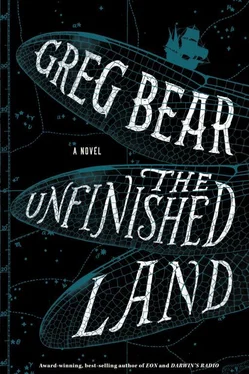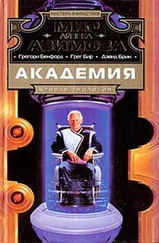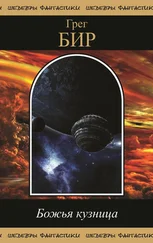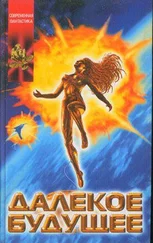“I do not belong here!” he cried out, tears coming to his eyes.
The black-haired woman suddenly stood before him. He had not seen her move! “Why hast thou no memory of place and line? Here, on this blessed isle, no memory for a boy maketh him like a knight without armor. Remember, or another will find and use thee—less gentle than we who are conjured by the King of Troy.”
They each touched three fingers to their rosy lips and laughed again. “Or not. Is Widsith young and favored once more?”
“Such fickle charms!”
“Follow us, then,” the last lady said, smiling over her shoulder. “Our time is short, our candles dim, and we are going.”
And so he followed. The way through this wide, shadowy glade seemed to wind back past trees he had already seen, and yet the women, in a loose grouping, laughing and singing alternately, waving their hands as if in pure enjoyment, seemed always to be walking straight ahead, always away from the village, the town—
But here was the bush he had hidden behind when the women first passed—he remembered the broken branches from his emergence and saw an impression of his foot.
It was on the fourth loop of this game that he saw the four women walking through a wedge of sunlight. The sun, angling under the clouds, was late and golden, almost orange, and as Reynard struggled to keep up, he realized that the slanting light passed through the women, as if they were made of gauzy silk. Their clothes, their hair, and a kind of stick outline of their bodies shadowed within.
He stopped and bit his lip—
And from the corner of his glance saw Manuel, Widsith, perched on a rock beside the path, whittling a stick with a small knife. The formerly old man smiled in sympathy. He looked thirty, at most forty years of age. He still had a bandage on his arm, but he moved the arm freely, and it appeared strong.
Reynard squatted before him, elbows on his knees and chin in his hands, and studied the man’s clothes, his demeanor.
“Now dost thou learn,” Widsith said, highly amused.
“Learn what?” Reynard asked.
“Not to follow the toys of the King of Troy.”
“And who might he be? A true king?”
“No king, ’struth,” Widsith said. “An old mage, powers weakened by time and foolishness. Still, he hath a certain skill.”
“He maketh women to walk in the woods?”
“A favorite subject, I think. They last the length of a candle, and then fade to the sticks and old bones he keepeth in piles near his hut. He deviseth clever names for his illusions. These he calleth bone-wives.”
“How long doth the candle last?” Reynard asked, surprised by his calm.
“A few hours, no more than a day,” Widsith said. “The King of Troy is benign, mostly—and so some in Zodiako, used to wandering magicians and childers, and sometimes hallows, like to think they tolerate his toys, even ask him to provide entertainment for village parties—though he can be unpredictable. Oft his hallows look saintly, but approach too close—and they bite! But now thou’rt here, and all on thine own instinct, while the town maketh grieving and mending, let us visit the old mountebank.” His look was at once crafty and guilty, and Reynard dug deep to find any trust. Yet Widsith had yet to do him wrong, and had shown courage throughout, whatever his deal with the island might be.
Reynard got to his feet. “Why go to this king who is no king?”
“I want his judgment o’ thee, to confirm or deny mine own. Other than that, he can inform us of where we need to go.”
“He is human?” Reynard asked.
“He may not know anymore.”
“And you are human?”
“Aye, as I have told thee already,” Widsith said. “By the grace of history, and the will of this island, I am still human. Ready?”
Reynard allowed he was still more hungry than ready to go witness illusions. “I have eaten, but not enough!”
“On occasions, Troy feedeth his visitors, though the hunger is assuaged only for the length of a candle—like his bone-wives. But our visit will not take long, methinks. And we must return to Zodiako soon.”

THE WOODS EAST of Zodiako seemed ancient and mostly undisturbed, unlike the forests in England, so often cleared to make ships or charcoal. These were not lively woods, Widsith pointed out—those tended to hug the shore, like prickly thorns, to protect the island. “Not that they are all that effective,” he said. “They mostly display a stubborn individuality, not a communal defense.”
Here, many of the trees were overarching wonders, bigger than any oaks Reynard had seen, rising to the mist-filtered sun, as if it were their proud duty to push through the canopy and cast all else in dappled shade. The lower decks of shorter, broader trees—Reynard guessed they were related to walnut—sometimes spread out like thick-rooted spiders through the litter and blankets of leaves, roots crisscrossing and humping the trail so that no wagon, and not many horses, could pass.
Widsith picked carefully along the half-obscured and winding path, stepping or climbing up and over the greater roots, making little bird whistles or muttering some or other incomprehensible name, as if he recognized some of the trees and was wary of them. Reynard saw deer, or something like deer, three or four of them, peering through a far veil of branches, unafraid. Suddenly they disappeared—and just as they did so, seemed to become people—small, lithe people. Were these the hreindyr Dana and her blunters had tried to warn the Spaniards about? Perhaps they were just ordinary English fallow deer, their shadows playing tricks. They did not make themselves obvious, whatever their breed.
The Pilgrim observed that the island’s day was showing signs of being short. The glade was already slipping into murky shadow, which Reynard did not much like, however benign the King of Troy might be.
“His toys deceive,” he said as he followed Widsith, nearly tumbling over a big root. He recovered and observed, “They speak riddles and nonsense.”
Widsith looked back and smiled. He was definitely getting younger—only a few gaps remained in his teeth. “Troy’s powers rise from etymon, and he knoweth many ancient tongues.”
Pay heed.
Reynard stiffened at the voice in his head. “Etymon—what are those?”
“First words that give birth to later words. The roots of all language—and much sorcery. Hel, I am told, saw that something was lacking in her creation, a blankness that must be filled. So she swept across the endless grasslands she had already made, and found the first Travelers trying to live there. She had forgotten making people, but thought these might be useful. So she walked among them, first as a gazelle, then as a lion, and finally as a woman, and in this form, the Travelers were willing to listen to her. And so, at her command, they spread out from their herds and horses. They listened to birds and insects, and took from their sounds and music many words.
“Still, this was not enough—the birds and insects had their own flesh and need. So she ordered the Travelers to look inward and draw up, as if from a well, their own human etymon. She told them to listen and remember the words they found in their own flesh and blood. In time—which she spun out as a lark, a fancy, very little like the time we know today, at least beyond these islands—the first Travelers carried these words over the new lands and seas, across their known world—those parts that had been finished—and offered them to other tribes, other humans. So began human languages other than grunting and whistling. Then they reported back to Hel, who used these new people to finally fill the blanks in her creation—though not all.”
Читать дальше








